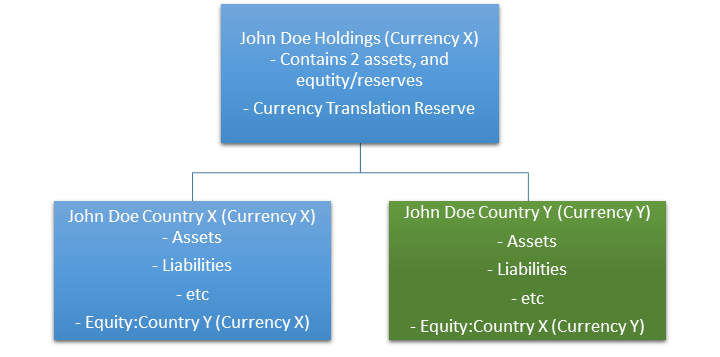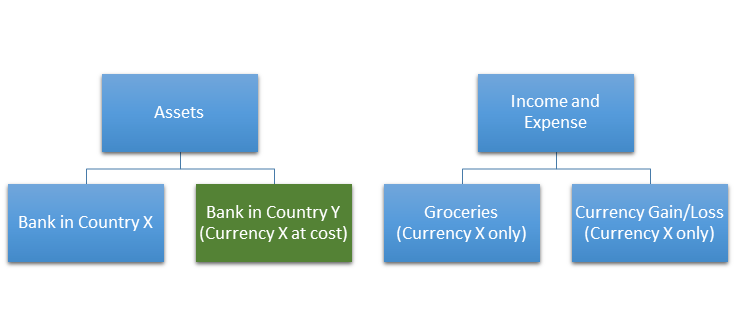Suppose that someone spends most of their life in one country with currency X, and a few years in another country where they have currency Y. Let's suppose also that the person earns a similar income and has similar types of expenses in both countries (such as rent and groceries).
From what I understand searching the internet, there are two different ways to structure this person's Gnucash accounts in order to track expenses and income. So far though, I've unfortunately not been able to find information on the advantages and disadvantages of these methods.
Option A: Either you create duplicate accounts, e.g.:
- (asset) Bank Account X (in currency X)
- (asset) Bank Account Y (in currency Y)
- (income) Income X (in currency X)
- (income) Income Y (in currency Y)
- (expense) Rent X (in currency X)
- (expense) Rent Y (in currency Y)
- (expense) Groceries X (in currency X)
- (expense) Groceries Y (in currency Y)
Option B: Or, one does not split the expenses and uses the main currency X for the similar expenses:
- (asset) Bank Account X (in currency X)
- (asset) Bank Account Y (in currency Y)
- (income) Income X (in currency X)
- (income) Income Y (in currency Y)
- (expense) Rent (in currency X)
- (expense) Groceries (in currency X)
I also gather that in both cases the person should enable the "Use Trading Account" option in Gnucash to ensure that the books balance due to fluctuating exchange rates*.
Question: From an accounting perspective, and when often examining expense reports etc, which method would be most appropriate for the situation?
*For background see question Good way to record currency conversion transactions in personal accounting software? and specifically the references http://www.mathstat.dal.ca/~selinger/accounting/tutorial.html and http://www.mathstat.dal.ca/~selinger/accounting/gnucash.html noted there.


